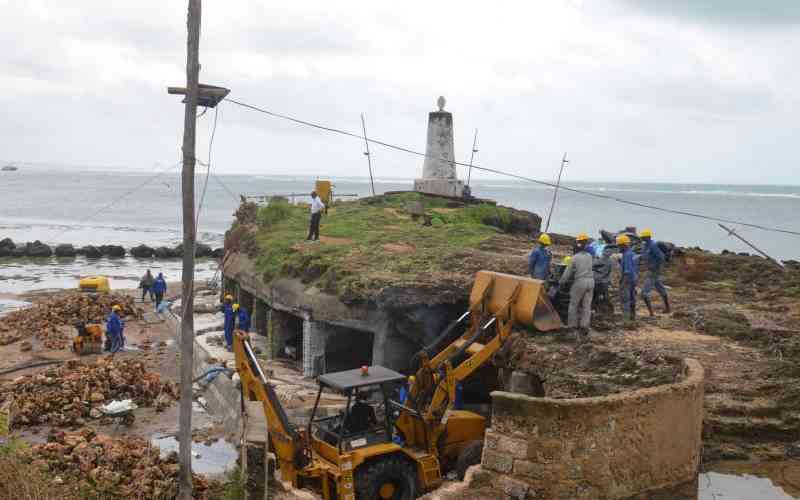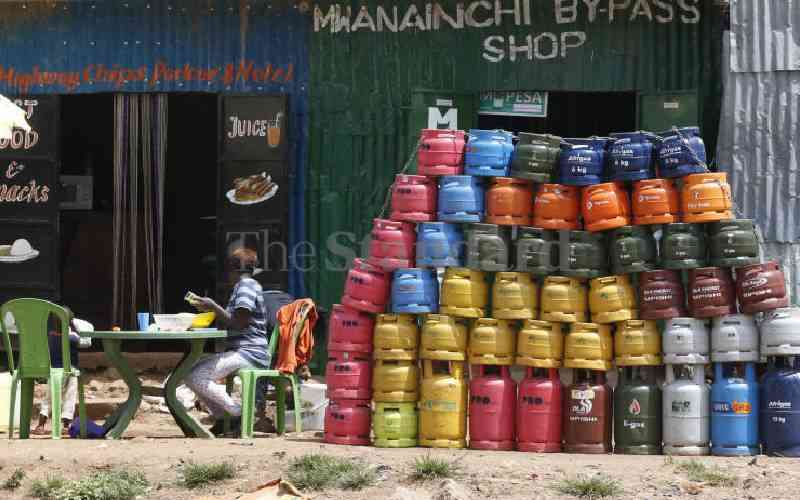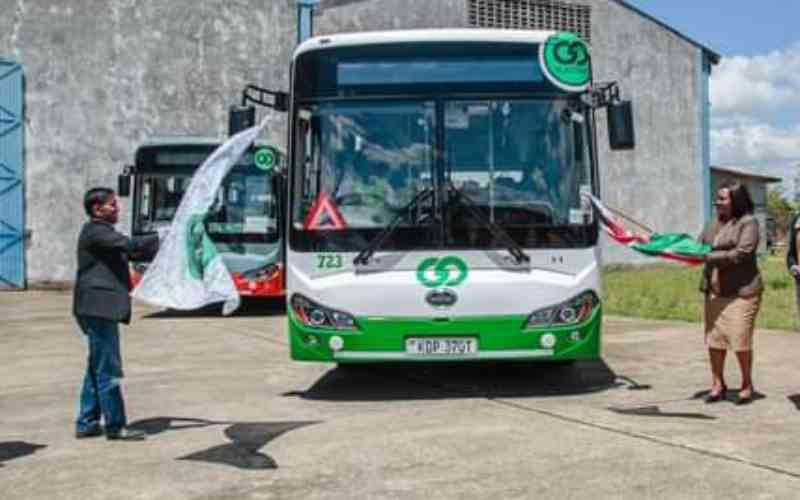Kenya: As the country intensifies the fight against insecurity partly caused by infiltration of militia group in the society, it is emerging that some exodus from the police force has resulted in scarcity of personnel to check on the vice.
The security force- police is not only ill equipped in terms of machinery and technological know –how but inadequate personnel.
At least one police officer is responsible for over 100 people calling for recruitment of more personnel to change the force.
But rigid academic qualifications has locked out young and committed youth ready to enroll in the police force.
Currently, a minimum requirement of D+ (plus) in form four is what one needs to join the police force.
But for the country to recruit enough police officers to fight upsurge insecurity, the academic qualification need to be lowered to at least standard eight level of education.
At the moment, the force recruits up to degree level but most of those officers join the police force as a stepping stone to better professional fields.
In most cases, some of these academicians opt for unpaid study leave while in police and some resign after completion of their studies to join other fields resulting in perennial shortage of security personnel to fight crime.
The committed and dedicated standard eight graduands will focus their attention in delivery of quality services since they do not have any divided attention.
This however does not mean that the graduates or form four leavers are not fit to join the police force.
The impact of social media in the force is likewise a contributory factor to slow response by the disciplined force to fight crime.
Some of the officers spend much of their time in social media- Face book, Twitter among others instead of fighting criminals including militia group.
Some of them (security officers) have been caught off-guard by the terror groups as they concentrate on social media.
Likewise, there is need for political willingness among leaders in the search for peace in the insecurity prone areas as peace caravan enters its final stretch.
The ongoing peace caravan approach to intercommunity peace building in areas hit by cattle rustling activities will only succeed if leaders speak with convincing honesty.
The partnership which involves the caravaners, local elders, and community based organisations, youth and women groups and the provincial administration in Kenya has also led to the formulation of measures aimed at peace building in various parts of the country.
Since the start of the leaders-led peace caravan three weeks ago, fewer incidents of cattle rustling have been witnessed along the West Pokot and Baringo borders
However, relative calm has been witnessed along the Turkana, Samburu and West Pokot border.
The intention to initiate the peace caravan is impressive and the objectives desirable as this will facilitate dialogue among communities living along the Kerio Valley.
It has become clear that the role of these caravans is to act as an avenue for community members to ventilate their issues openly and seek amicable solutions.
But what is important is that leaders from each community should be honest and speak with one voice during peace forums and particularly when they retreat to their respective areas of jurisdictions.
In most cases, leaders in the Kerio Valley incited their communities against their neighbours for their selfish gains while pretending during peace meetings that they are committed to peace.
For instance, during ultimatums to surrender illegal firearms in their possession, the orders usually fall on deaf ears as leaders of the targeted communities always rally behind their ‘people’ and have the orders squashed as soon as operation starts.
However, there are indications that the security situation in the region is worsening forcing leaders in the area to say enough is enough.
Two months ago, leaders from cattle rustling prone areas of Baringo, West Pokot, Samburu and Turkana met President Uhuru Kenyatta and Deputy President William Ruto separately and resolved to put aside their differences.
The leaders- Governors, Senators, Members of the National Assembly and County representatives met in a meeting that saw them speak candidly about the vice.
Interior Cabinet Secretary Joseph Nkaisery, Principal Secretary Monica Juma, Inspector General of Police Joseph Boinett, Rift Valley Regional Coordinator Osman Warfa and County Commanders from the troubled regions also attended the respective meetings
In resolutions read by Turkana West MP Daniel Nanok, the leaders agreed to cease hostilities, convene peace meetings, explore ways of solving boundary issue and cattle rustling which they said was at the heart of the disputes.
The leaders also called for immediate re-opening of all schools closed because of cattle rustling activities.
Others were involvement of religious leaders in search for peace, recruitment and deployment of Kenya Police Reservists (KPR), establishment of special police unit to be named-anti cattle rusting squad and establishment of more police posts.
The leaders also resolved to initiate and improve the existing irrigations schemes, schools, health centers in areas prone to menace and establishment of ministry to deal with issues of pastoralists.
The meeting followed the spate of violence that has left scores of people dead and displacement of others as well as closure of schools.
To effect this, several meetings involving warriors are organized where they are educated on the importance of harmonious co-existence among themselves and with their neighbours.
This initiative is part of the efforts by the provincial administration, police and elders to come up with homegrown ways to contain the cattle rustling menace among the pastoral communities in various parts of North Rift region.
It has become evidently clear that past forceful attempts by the Government in Pokot, Samburu, Turkana, and Baringo to wipe out illegal arms have failed and banditry and cattle rustling still thrive.
The multi-faceted dimensions of the problem compound the logistical challenges of any realistic disarmament strategy.
Sanitising the North Rift region, for example, would require four governments – Kenya, Uganda, Ethiopia and Sudan – to either orchestrate a finely coordinated police-cum-civil society offensive, or to marshal the overwhelming force required for disarming the groups within their respective borders.
In both scenarios, security forces and peacemakers alike can expect sustained opposition on the ground.
The state armed some of these groups in the first place, resulting in other communities acquiring guns. Both facets of the process attest to the failure of regional governments to defend their citizens on the margins.
Governments have sabotaged their own monopoly of the modern weaponry now in circulation, and other factors of internal politics and cross-border real politics complicate regional co-operation on this score.
Unsettled conditions in southern Sudan and the warlords ruling Somalia would render the impact of regional disarmament only temporary even if successful while democracy and elections add a new element of volatility to the mix.
It is true that efforts by Kenya police to enforce the law only aggravate the situation, sometimes leading to vicious gun battles, with the porous borders making it easy for cattle rustlers to flee to neighbouring countries.
But following the acquisition of firearms through the border with the neighbouring countries by communities living along the border areas, the traditional cattle raids has changed to a full-fledged war that has even left behind staring scars of bitterness and hatred among the warring communities.
The issue is that unlike in the past, pastoral communities are no longer using the traditional bows and arrows. They are now using AK 47, G3, mortars and even grenades among other sophisticated weapons.
In fact this is what has given the Government a headache in stopping the menace once and for all.
However, following various meetings among stakeholders in the cattle rustling North Rift region, it was decided that a homegrown solution, and not use of force by security forces, is the answer to the rampant insecurity.
The Government’s move to embark on leaders-led peace caravan in the search for lasting peace in areas hit by insecurity is welcome.
Such peace initiatives will enable pastoralist communities in the region and across the borders to share available resources without conflict.
However for the peace caravan to yield fruits, there should be political willingness among leaders in the search for peace in the insecurity prone areas.
But for the country to recruit enough police officers who are committed and dedicated to fight upsurge insecurity, the academic qualification need to lowered to at least standard eight level of education.
Kaino works for Deputy President’s Press. Comments expressed here are his own.
 The Standard Group Plc is a multi-media organization with investments in media
platforms spanning newspaper print operations, television, radio broadcasting,
digital and online services. The Standard Group is recognized as a leading
multi-media house in Kenya with a key influence in matters of national and
international interest.
The Standard Group Plc is a multi-media organization with investments in media
platforms spanning newspaper print operations, television, radio broadcasting,
digital and online services. The Standard Group is recognized as a leading
multi-media house in Kenya with a key influence in matters of national and
international interest.
 The Standard Group Plc is a multi-media organization with investments in media
platforms spanning newspaper print operations, television, radio broadcasting,
digital and online services. The Standard Group is recognized as a leading
multi-media house in Kenya with a key influence in matters of national and
international interest.
The Standard Group Plc is a multi-media organization with investments in media
platforms spanning newspaper print operations, television, radio broadcasting,
digital and online services. The Standard Group is recognized as a leading
multi-media house in Kenya with a key influence in matters of national and
international interest.









